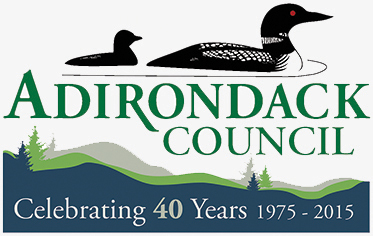
Adirondacks Would Lose Brook Trout & Salmon Fishing Entirely by 2100 Without Action Now to Curb Climate Change, Federal Study Says

Adirondacks Would Lose Brook Trout & Salmon Fishing Entirely by 2100 Without Action Now to Curb Climate Change, Federal Study Says
Rivers, Streams Would be Too Warm throughout Northeast except Patch at NH/Maine Border
FOR IMMEDIATE RELEASE, Tuesday, June 23, 2015
For more information:
John F. Sheehan
518-441-1340 (cell)
518-432-1770 (ofc)
ELIZABETHTOWN, NY. – All of the Adirondack Park’s iconic trout and salmon fishing destinations and cold-water fisheries would disappear from the landscape by the end of the century without global action to prevent the climate from overheating the park’s rivers, lakes and streams, the U.S. Environmental Protection Agency (EPA) reported late Monday.
According to the EPA’s study, global action to reduce greenhouse gas emissions would save 70 percent of our threatened trout and salmon from extinction.
The EPA’s report titled "Climate Change in the U.S.: Benefits of Global Action," is a summary of the Climate Change Impacts and Risks Analysis (CIRA) project, a peer-reviewed study. It compares impacts in a future with significant global action on climate change to a future in which current greenhouse gas emissions continue to rise.
The report also predicts widespread damage to public health, clean water, electricity grids, roads and bridges, forestry, agriculture and coastal communities. The EPA will host an online Q&A session today (Tuesday, June 23) at 3:30 p.m. EST to discuss the report.
“This report is shocking. Its map of brook trout and salmon habitat in the year 2100 shows a big blank space over the entire Adirondack Park,” said Adirondack Council Executive Director William C. Janeway. “Without immediate action to curb the warming climate, EPA is predicting that all Adirondack brook trout and salmon populations will be dead within 85 years. A change like that would fundamentally alter the nature of this park, its water, wildlife and the economy of the communities. The Adirondack Park would never be the same again.
“That means all of New York’s brook trout and salmon will die. This is just one of the drastic and terrible changes our children and grandchildren would inherit from us if we do nothing,” Janeway said. “That would be a shameful legacy. We ought to be doing everything we can to avoid such a fate. We should start today.”
Janeway noted that many Adirondack trout and salmon populations are genetically unique and valuable to the entire web of life in the park. They are food for loons and other iconic wildlife, while also serving as a top predator in the waters they inhabit. Their loss would unravel the park’s web of life.
“In terms of people, the loss of our brookies and salmon would strike a horrendous blow to the Adirondack Park’s tourism economy,” he explained. “The bass and sunfish that would replace brook trout and salmon are fun to catch, but they live almost everywhere. People will not drive hundreds of miles through the mountains to angle for the same fish that swim back home.”
Estimates of losses to communities that host brook trout or salmon waters run as high as $1.5 billion per year nationwide.
Acid rain has already taken a toll on the park’s fish, but recent, hard-won pollution reductions have saved many places. Others are on the mend and there is hope of recovery nearly everywhere, Janeway noted. Unbridled climate change would wipe out all of that progress, Janeway said.
EPA’s report states:
Freshwater Fish: All trout and salmon habitat from Tennessee to New England would be too warm to support native fish by 2100 without global action to curb greenhouse gases (GHG). With action to curb greenhouse gas could preserve brook trout in the Adirondacks approximately 70 percent of habitat for cold-water fish species that would otherwise be lost by the end of the century.
Key Findings
1. Warming waters and changes in stream flow from climate change will alter the distribution of freshwater fisheries across the country. Without global GHG mitigation, cold-water species are projected to be replaced in many areas by less economically valuable fisheries over the course of the 21st century, especially in the Mountain West and Appalachia (including Catskill Park, Adirondack Park).
2. Habitat suitable for cold-water fisheries is estimated to decline nationally by approximately 62 percent through 2100 under the Reference, but by only 12 percent under the Mitigation scenario. Global GHG mitigation is projected to preserve cold-water habitat in most of Appalachia and the Mountain West.
3. GHG mitigation avoids an estimated $380 million to $1.5 billion in total recreational fishing damages through 2100 compared to the Reference (discounted at 3 percent).
The report’s map shows that, without global action, there would be no brook trout habitat left in New York, or anywhere in the Northeast, except for a patch at the junction of the borders of New Hampshire, Maine and Quebec.
“We are thankful to the Obama Administration for providing this clear illustration of how climate change is harming the environment and the economy of the Adirondack Park and the entire nation,” Janeway said. “Which of us wants to explain to our grandchildren that we ignored this information and allowed these terrible things to happen?”
The Adirondack Council’s mission is to ensure the ecological integrity and wild character of New York’s six-million-acre Adirondack Park. The Council envisions an Adirondack Park comprised of core wilderness areas, surrounded by working forests and farms, and vibrant rural communities. Adirondack Council members live in all 50 United States.




